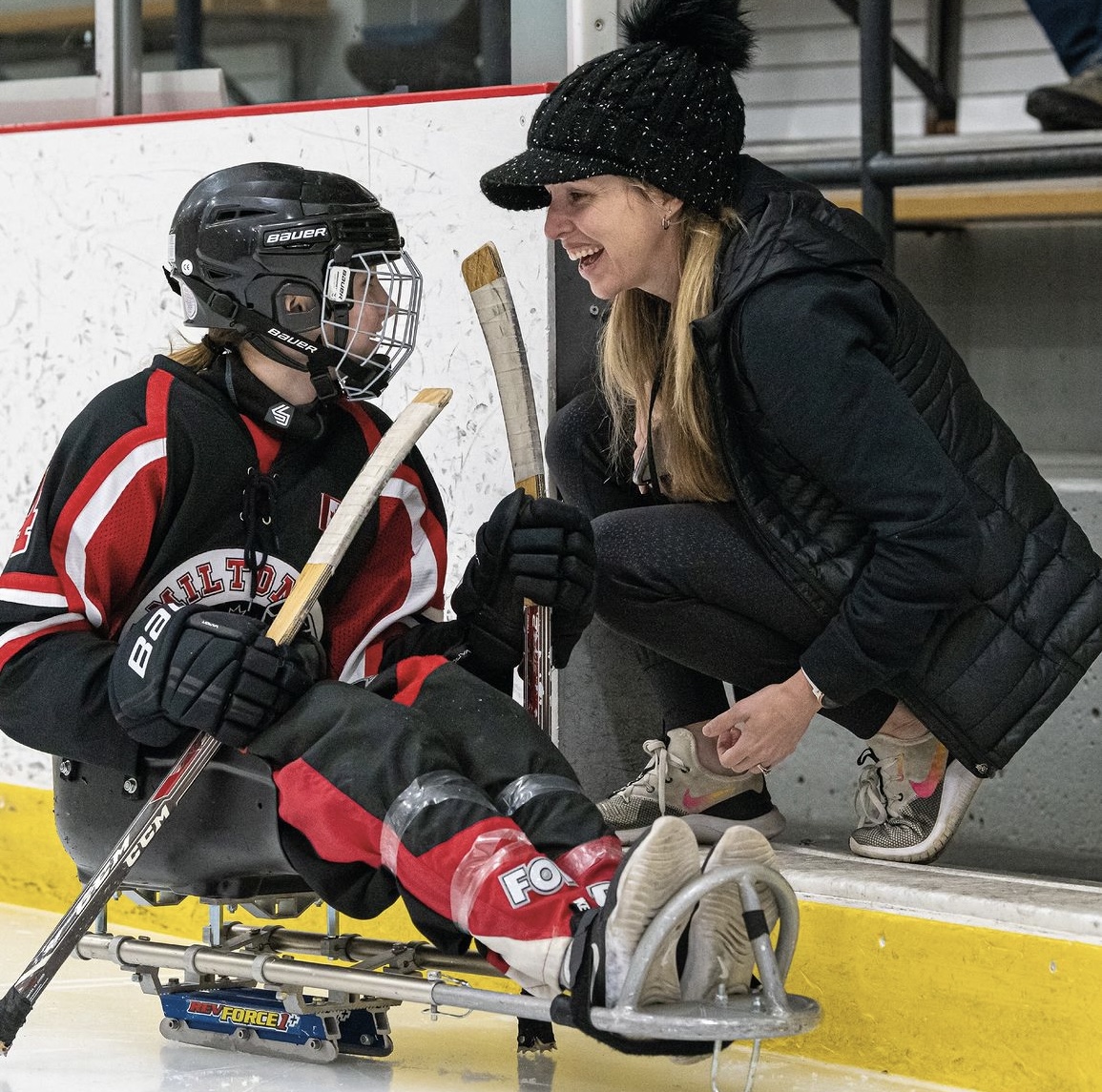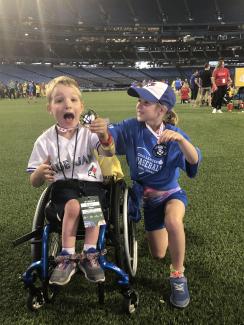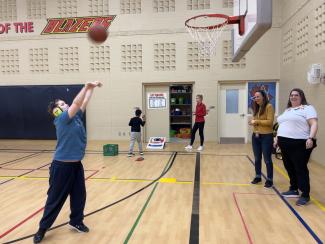
Ophea’s Monthly Recognition Spotlight aims to illuminate the bright spots within the education sector through recognizing the critical work being done by community members and value-aligned organizations, and its impact on student and staff well-being. This initiative also aims to strengthen connections between the Ontario education sector with individuals and organizations serving equity-deserving groups through raising awareness of the resources and services available to Ontario educators. Read on to learn about this month’s featured Spotlight, Jennifer Gallupe Roos, an Educator and Inclusive Sport Advocate at Bruce Trail Public School within Halton District School Board.
What motivates you?
My motivation to advocate for equitable access to sports at school stems from my belief that every individual deserves the chance to play and grow through sport, regardless of their abilities. I am also driven by my own personal experiences and the impact they have had on me. As a mother, I'm acutely aware of the different opportunities available to my two children when it comes to their participation in sports at school. My daughter, who does not have a disability, benefits from a wide range of sports programs that provide numerous opportunities for involvement and skill development. In contrast, my son who is disabled, is frequently relegated to the sidelines, often with little or no options for participation. It's heart-wrenching to hear him ask, "when is it my time to play?", especially when he shares the same passion and enthusiasm for sports as his sister. I am committed to advocating for greater inclusion, so that every child, including my son, can experience the joy, socialisation, skill development, sense of belonging, and all the other benefits of being part of a team at school.
What is one thing you wish people knew about this initiative?
One thing I wish people knew about starting a disability-centred sports program at school is that, while it may seem daunting, it's not as hard as one might think! There are definitely challenges and obstacles to overcome, such as attitudinal and systemic barriers, but the rewards of creating an inclusive and welcoming environment for all students are immeasurable. By prioritising the needs and abilities of students with disabilities, we can create sports programs that are not only fun and engaging, but also foster a sense of community and belonging within our schools. With dedication, creativity, and a willingness to learn, anyone can take steps towards creating a disability-centred sports program in their school!
What advice would you give to someone wanting to start a similar initiative in their school and/or board?
If you're interested in starting a disability-centred sports program in your school, here is some advice based on our school’s experiences.
- Raise Awareness. Educate your school community about the importance of disability-centred programming and the benefits it offers. Get students, teachers, and administrators involved and excited about the idea of all students participating in sport at school.
- Start small, but dream big! Begin with identifying a core group of athletes who are interested in participating and build from there. Practices can be short and focussed around simple team building games and activities, like freeze dance or centres with noodles and balloons! Give yourself time to settle in and grow. Initially, our program only had a few athletes, but over time has grown to nearly 100 athletes who participate on a weekly basis, year round.
- Partner up! Use sport clubs, disability organisations, established school programs and other advocacy groups as resources, as they can provide valuable expertise and connections to the disability community.
- Adapt and evolve! Be prepared to adapt and modify your plans as you go along. Be open to feedback from the disability community and be willing to make changes as needed.
- Celebrate your successes. Celebrate the successes and achievements of your teams. Build celebratory rituals and traditions that athletes look forward to each practice. This will help build momentum and support for the initiative.
What do you plan on achieving next?
Moving forward, our coaching team is dedicated to expanding disability-centred programming, not only within our school, but throughout our school board and beyond! Our ultimate objective is to help make disability-centred sports teams just as prevalent and accepted as any other teams offered to our students without disabilities. In order to accomplish this, we aim to share our ideas and experiences, provide training, and develop resources for educators so they can confidently run programs and coach students with disabilities within their own schools. While we strive to achieve these ambitious goals, our athletes will be working hard, preparing for a variety of exciting sporting opportunities still to come this school year, including playing baseball on the field at the Rogers Centre, practising for a Board-wide disability-centred Track and Field meet, and competing in a baseball tournament with neighbouring schools.
How can our audience engage with your work?
Additional tips, strategies and sample disability-centred practice plans for any experience level can be found at: https://sites.google.com/hdsb.ca/adaptive-sport, and follow @challenger_baseball_bt on Instagram to learn more about Bruce Trail Public School’s disability-centred baseball teams!


